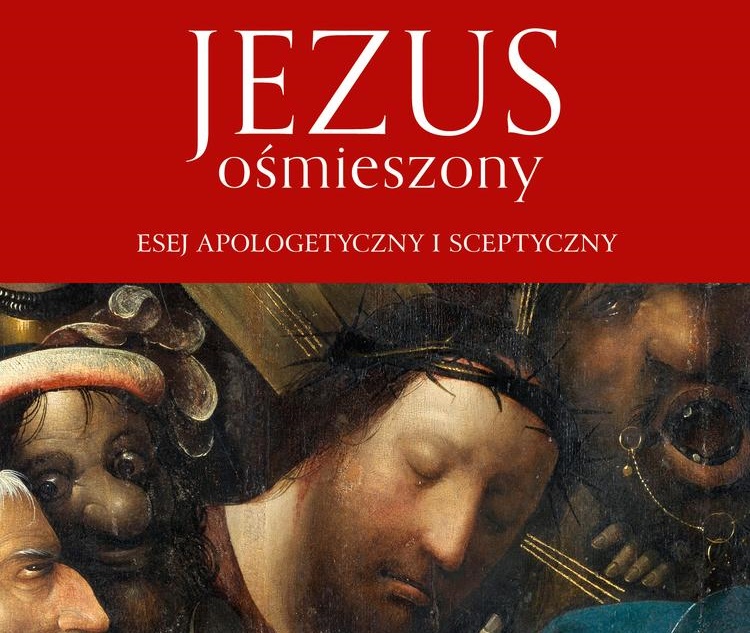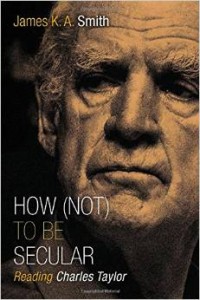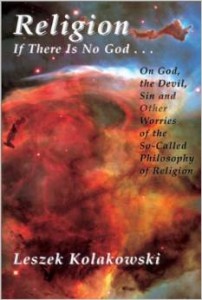
If patience is a virtue, then the fact that the Church thinks in centuries is proof of its virtuousness all the counterexamples notwithstanding.
There is an anxiety in certain atheist circles to prove that atheism is on the rise and making people more moral. Scandinavia is a commonly cited example. The statistics are presented unreflectively without considering just what sort of morality is being followed by the most non-religious region of the world. When you dig a little below the surface it turns out that the moral yardstick turns out to be a Christian one, because nobody is, for the most part, non-Christian enough to praise Viking morality.

All of this is clearly related to what James K.A. Smith calls in How (Not) To Be Secular, the haunting of all belief systems. In the late modern world it’s no longer only Christian belief is under fired and severely contested, but non-belief also suffers from severe epistemological doubts. The skeptical playing field has been leveled and nobody is safe. The condition described by Czeslaw Milosz in “Oeconomia Divina” applies to both believer and non-believer equally:
I did not expect to live in such an unusual moment.
When the God of thunders and of rocky heights,
The Lord of hosts, Kyrios Sabaoth,
Would humble people to the quick,
Allowing them to act whatever way they wished,
Leaving to them conclusions, saying nothing.
It was a spectacle that was indeed unlike
The agelong cycle of royal tragedies.
Roads on concrete pillars, cities of glass and cast iron,
Airfields larger than tribal dominions
Suddenly ran short of their essence and disintegrated
Not in a dream but really, for, subtracted from themselves,
They could only hold on as do things which should not last.
Out of trees, field stones, even lemons on the table,
Materiality escaped and their spectrum
Proved to be a void, a haze on a film.
Dispossessed of its objects, space was swarming.
Everywhere was nowhere and nowhere, everywhere.
Letters in books turned silver-pale, wobbled, and faded
The hand was not able to trace the palm sign, the river sign, or the sign of ibis.
A hullabaloo of many tongues proclaimed the mortality of the language.
A complaint was forbidden as it complained to itself.
People, afflicted with an incomprehensible distress,
Were throwing off their clothes on the piazzas so that nakedness might call
For judgment.
But in vain they were longing after horror, pity, and anger.
Neither work nor leisure
Was justified,
Nor the face, nor the hair nor the loins
Nor any existence

I’ve been reading a book recently published in Poland. It’s by Leszek Kolakowski (Milosz’s colleague at Berkeley and a close friend), author of Religion: If There Is No God . . . , God Owes Us Nothing, Metaphysical Horror, and the magisterial Main Currents of Marxism. The book was never published during his lifetime, because its French manuscript was only recently found in his personal papers after his death.
It bears a mischievous title, Jesus Mocked: An Apologetic and Skeptical Essay [Jezus ośmieszony. Esej apologetyczny i sceptyczny]. Throughout his life Kolakowski occupied philosophical positions somewhere between the apologetic and the skeptical toward the Western theological tradition. It is not clear that he ever went over into explicit religious belief after years of being a faithful Marxist. That’s as it should be, because it exemplifies the condition that Smith discusses in his book.
Here is his skepticism, so similar to John Gray’s, about the moral superiority of the post-Christian Western world (translation is my own):
You say that this civilization, despite all the above mentioned benefits, somehow still functions. Yes, it functions with all its benefits and faults, which are indivisible. Since the extremely rapid process of so-called “secularization” or “de-Christianization,” or “paganism” (the last word possibly contains in itself an unjust judgment of pagans, of whom many were religious people) has only lasted around three decades [written in 1980’s] it is difficult to extrapolate these trends toward an indefinite future. Who knows how long this society, which has taught itself and accepted that there are no givens, that there is no ready differentiation between good and evil, that is, that the feeling of guilt is a sickness or a relic of old prejudices, will be able to survive without sliding into a Hobbesian “state of nature”?
The great experiment continues. Right now there isn’t enough data. Western Europe’s convictions might be tested sooner than expected with Russia coming on strong. Atheists and believers are in this boat together.
Let’s not mock each other, because the joke of the last half century might be on us all. We simply don’t know.
It’s irrational to draw conclusions from something so recent.
History is perverse and can reverse itself. After all, it made a man from the backwoods, a member of an obscure sect barely followed by anyone, the arbiter of truth for the West.
Maybe this is a signal to hold off on all sorts of Benedict Options?












